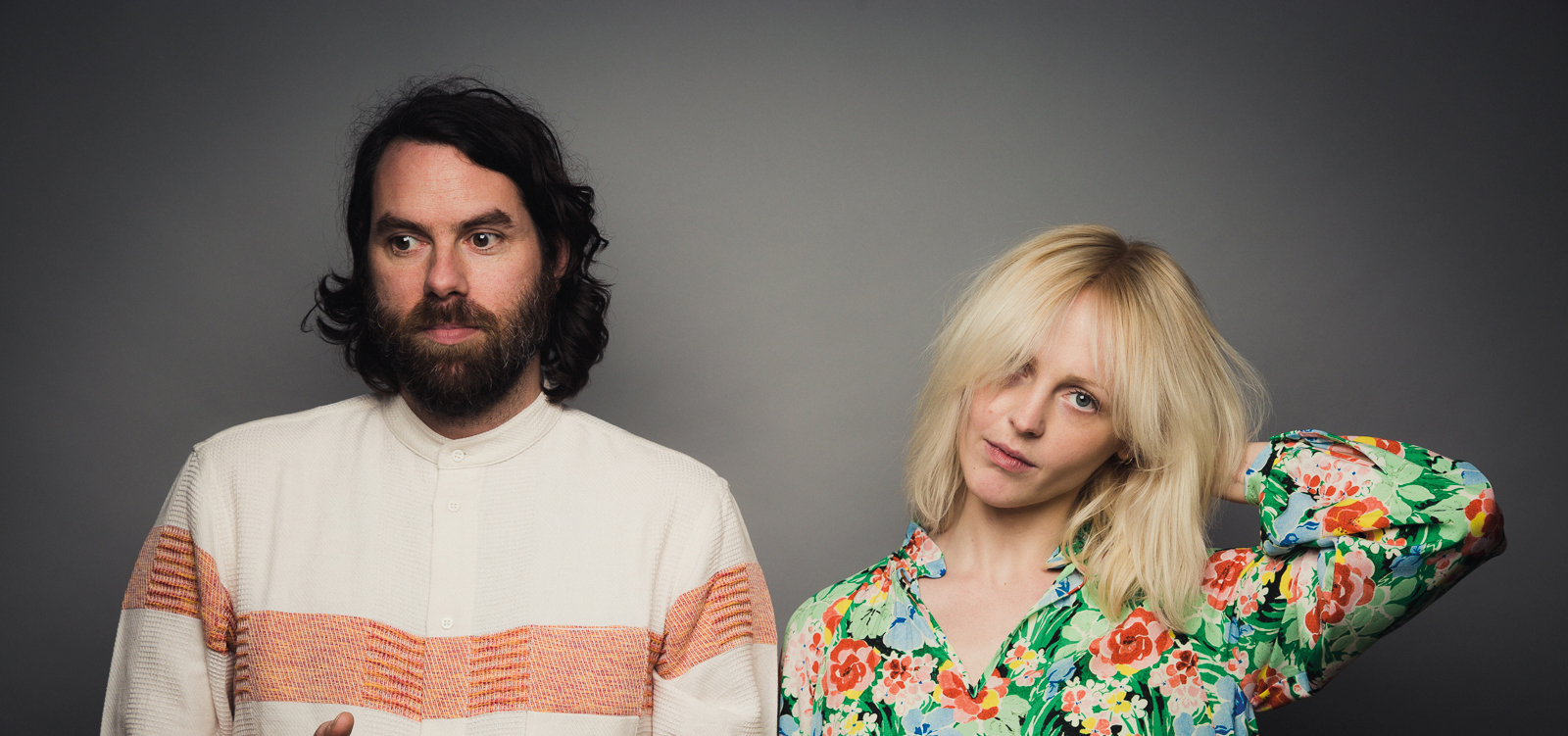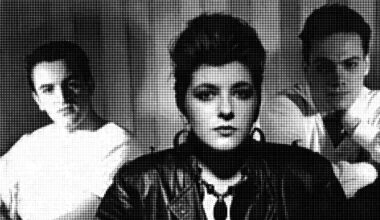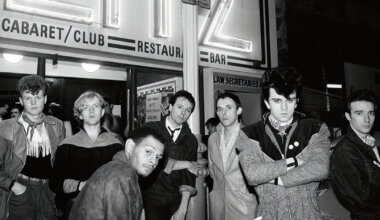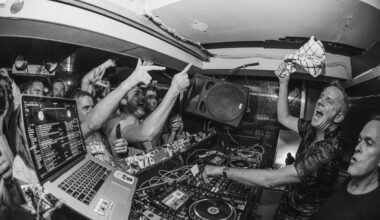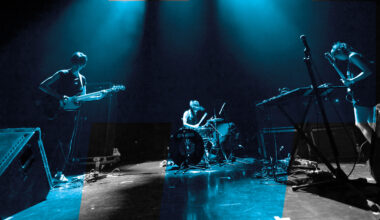Brit-folk darling Laura Marling, and Tunng’s Mike Lindsay would appear, on the strength of this interview at least, to be odd musical bedfellows and yet their album as Lump is a fiery spark of a record. We ask the questions, see those stormclouds brood…
This is the curious tale of LUMP. A diffident, introverted yet much-garlanded singer-songwriter who doesn’t really like talking about her work. And a cheerful affable electronic producer who’s as friendly and obliging as his collaborator is unyielding. Whatever their relative merits, the unlikely story is they’ve joined forces as LUMP and made a truly wonderful record that is, by turns, melodic, eclectic, textural and adventurous and difficult to classify, as all the best music should be.
The tale starts in 2016, when Laura Marling and Mike Lindsay, an in-demand producer and co-founder of acid folk outfit Tunng, had a chance meeting and decided to head into the studio together.
Lindsay had a few musical arrangements tied together with flute drones that were waiting to be transformed into songs; Marling provided the vocals and the songwriting, while her six-year-old goddaughter came up with the name.
“I love that it comes from that innocence,” enthuses Mike, “and to her, LUMP is this furry thing!”
Furry or smooth, ‘LUMP’ is a delightful and mutable and lulling collaborative album comprising seven songs, of which ‘Curse Of The Contemporary’ is the compelling lead track. The song’s title and its plaintive lyrics about being bored in LA, and chanted chorus musing on sun worshippers who “can’t believe what they’ve become”, speak of themes about the emptiness of modern life. “The commodification of curated public personas and the lengths we go to escape our own meaninglessness,” so say the press materials.
Interesting stuff.
I’m on a conference call with Marling and Lindsay who are camped out in a London studio. Is Marling using art to try and change people, or at least wake them up from their mesmerised, phone-addicted scrolling and ennui? In short, is ‘Curse Of The Contemporary’ a call to arms for people to engage with each other properly?
“Yes,” she says, “I do think there should be a bit of a call to arms for that, but I don’t think I would like to be the caller to arms. I don’t think the album is any kind of profound statement about the emptiness of contemporary life; we just are living in unusual and fast-paced times, especially for culture.”
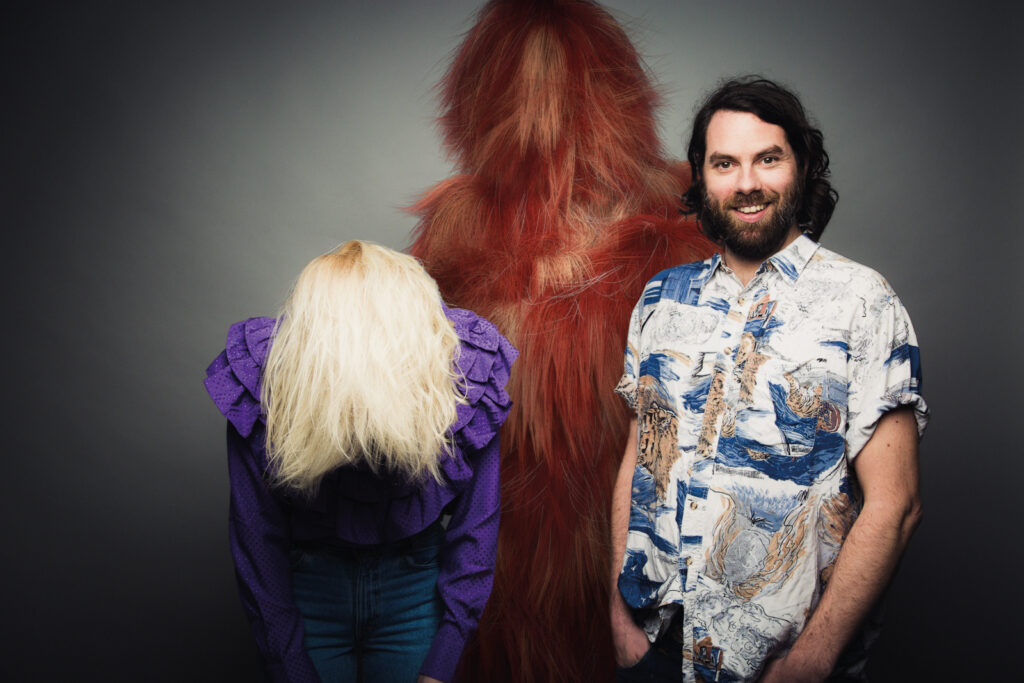
We talk about the timing of the making of the album, which coincided with the EU referendum in the UK at the start and the election of Trump in the US towards the end. What emotions, if any, did all this elicit in them?
“The album might in some ways reflect the mindset of that time,” says Marling, “but in other ways it wasn’t anything to do with that. I don’t know whether my thoughts about Brexit are really relevant.”
Next question! While LUMP is a new project, Marling has, during the last few years, been preoccupied with feminism and women’s narratives. Not only was her last album, 2017’s, ‘Semper Femina’ acclaimed for its strong insight into women’s perception of women, but her podcast project ‘Reversal Of The Muse’ saw her curating narratives from powerful, iconic women in the music industry, such as Dolly Parton and Emmylou Harris. I wonder if, in light of #metoo and #timesup, she’s had further thoughts on the current status quo of gender politics?
“I’m reluctant to talk about Laura Marling things,” she states with finality. “LUMP is a different project.”
Right you are. Back on message. Perhaps she’s happier talking about her time in LA, where she decamped recently for a year or two, becoming a yoga teacher and a tarot card reader for a while. Did it bore her as the lyric in ‘Curse Of The Contemporary’ suggests? Did she feel disaffected there? I also wonder if she found Laurel Canyon, once the stomping ground of so many folk rock and country rock troubadours in the late-60s and early-70s, to be a kind of spiritual home for her?
“The song ‘Curse Of The Contemporary,” she states, “it’s a fictional character; it’s not autobiographical.”
I try another tack… LUMP is a much more eclectic, electronic album, I ask if it changed the way she sang or used her voice as an instrument?
“Yes, it was a very different thing I was being asked to do by Mike’s music,” she says. “He’d created this beautiful musical backdrop and he needed a singer and so I came in and did whatever the music needed.”
Did it challenge her vocally?
“It took me to places I’d never been before,” she admits, clearly feeling no urge to describe this further.
I turn my attention to Lindsay, who is, after the polite yet rather curt froideur of Marling, by far the more loquacious member of the duo. He is more than happy to describe and expound on the process of making the music, how his aim was to produce interesting and diverse textures and soundbeds which Marling then fleshed out into songs and wrote lyrics for.
He talks about how Marling brought different personas to each tune and developed the melodies into intriguing characters. It makes me wonder if he pushed her to be more creative, experimental and avant-garde with her vocals. For example, on the track, ‘May I Be The Light’, Marling intones the intro all deadpan and robotic, almost like a drone or teutonic alt-heroine, Nico.
“I think it all came from Laura,” he says, before addressing her directly. “Do you remember sitting in the kitchen with a guitar trying to fathom it out? Once we’d had a little play around, the voices came out naturally.”
Apparently, absurdism and surrealism were influences on the lyrical content so I’m curious as to whether these were reflected in Lindsay’s very textural musical arrangements too. ‘Hand Hold Hero’ begins almost hallucinogenically with Marling’s ululating vocal, then segues into pulsating electronica with a slightly country and western feel.
“We were using this Moog synth from the late-60s,” continues Lindsay. “It reminded us of Donna Summer and Giorgio Moroder so I think we were channelling that.”
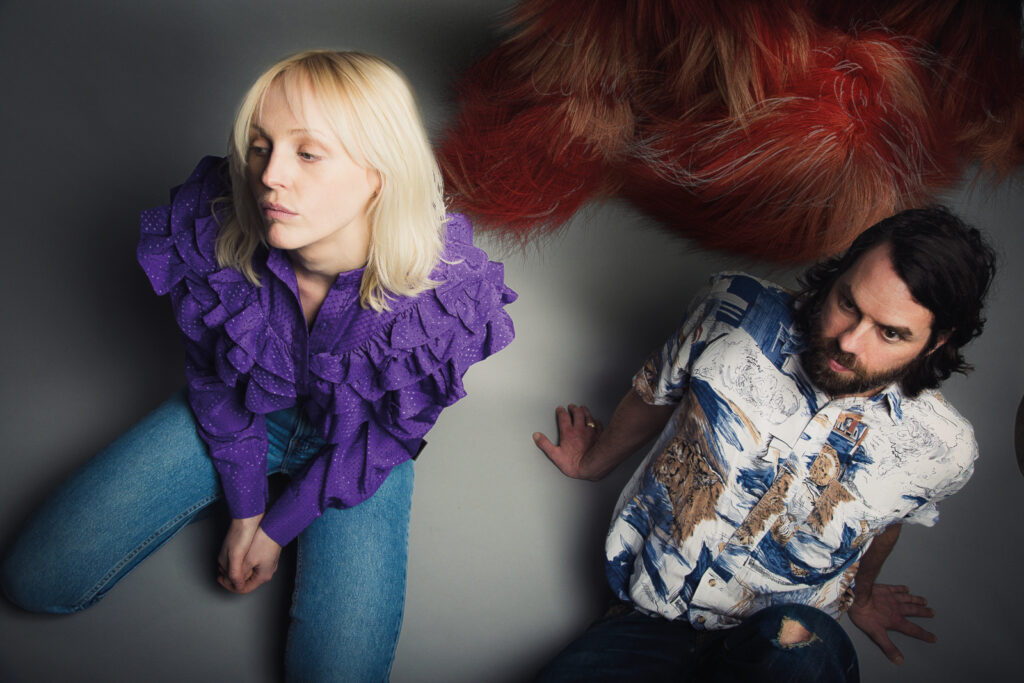
It emerges that during the last decade, Lindsay has spent four years living and making music in Iceland. Imagine the Icelandic music scene and you bring to mind mavericks like Björk, Sigur Rós and Ólafur Arnalds, who’ve done things their own uncompromising way and become huge global stars. It also has a bit of an unusual vibe and is famed for its hard-drinking hedonism…
“I had an amazing time there,” he enthuses. “The prehistoric landscape and the volcanoes do overwhelm you a bit, but it’s such a small community of fantastic musicians with wonderful taste and, especially in Reykjavik, they all drink in the same pubs! So I met all my heroes. In the first week I sat down with one of Múm, met people from Sigur Rós… you see Björk walking out of a swimming pool that you’re just walking into. They all play in each other’s bands and help each other out. It’s all about wanting to make music for the sake of music; it’s not about ego or fame there at all.”
But enough of Lindsay’s forthcoming approach, let’s get back to Marling and try to parse some meaning from her sometimes gnomic lyricism, shall we? Witness ‘Late To The Flight’, which may be about death, with its lyric, “Take your seat next to the woman in white”, sounding to me like voyaging into the afterlife or preparing for the final journey somehow.
“With the lyrics, I like to let people make their own interpretations of what they’re about,” she says. “The writing of the lyrics was all very quick and a stream of consciousness, so there’s not an intended message. It’s really interesting to see what people draw out of the lyrics; what meaning people attribute to them.”
In the past, Marling has written a song about the wonderful, proto-feminist surrealist author and painter Leonora Carrington who famously rebelled against her wealthy family, had a relationship with fellow surrealist artist Max Ernst, was subsequently locked up in a mental institution and finally ended up having a long and fruitful creative existence in Mexico as an expat.
“The thing that I got from surrealism?” she ponders. “I mean, I’m not a particularly proficient art historian, but the thing I enjoy about it is the relation to psychoanalysis and the unconscious. Leonora Carrington talked about how her paintings were ‘excavating part of the unconscious’, which I enjoy. Her and poets like [Rainer Maria] Rilke are speaking a language that’s quite primordial, I think.”
After a little research on LUMP’s lyrical influences, I see the name of Edward Lear – an inspired choice – and I immediately draw to mind Jenny Uglow’s recent Faber biography, ‘Mr Lear’ and hope for a chat about his coruscating witticisms and tortured, unrequited, epilepsy-blighted life. What’s her favourite Lear poem, I wonder?
“I only know ‘The Owl And The Pussycat’,” she says, bluntly. “I think when things like that get into a press release, it’s more that I don’t want to talk about the same things in interviews over and over.”
So what about Ivor Cutler? The highly eccentric Scots poet and humourist who is also mentioned as an influence.
“I have a live album of his,” she says.
I venture a question about her Quaker education and any kind of potential spirituality and belief system which may have originated from that.
“If you don’t mind I’d rather not talk about that.”
One more try. I ask her if she minds talking about her background. She is the daughter of a Baronet and comes from a long line of aristocrats.
“I don’t want to speak about that.”
Or anything it would seem. So LUMP then, very much a yin and yang, two halves of a whole. One half who proves a pretty reluctant interviewee, and the other half all good natured and enthusiastic. One half who is as helpful and jolly as the other is dour. But don’t let that put you off the album. The beguiling melodies and songs will truly hang around, enhancing your consciousness and dancing through your mind. It’s really very good. Curiouser and curiouser, indeed.
‘LUMP’ is out on Dead Oceans
